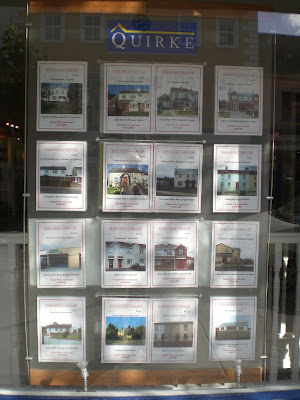
I am all for negotiation.
I am involved in it every day, working and non-working.
Without the possibility of negotiation, upwards or downwards, us agents would be out of a job.
We all negotiate in most aspects of our lives.
With our spouses.
With our children.
With nearly everyone we meet.
And in these times, almost every time we have to part with money.
At our recent
First-time-buyer seminar, I stressed that the bidder should not be put off by the asking price.
I said they should research the market.
View homes similar to the one they liked.
compare prices.
They should make an offer they thought reasonable.
If it was rejected, ask for the logic behind the rejection.
If none is forthcoming, move on.
Make an offer on another property.
Repeat the process, it will work.
If you do it often enough, you will buy a home.
But principally,
research the market.
No point in making an offer that is not at least nearly reasonable.
You need to get the seller thinking about your offer.
To do this it must be at least nearly reasonable.
The seller must think there is a chance of doing a deal, otherwise they will not engage.
No-one will make progress.
Nothing will be sold...or bought!
Yesterday, I showed a home to a couple, listed at €350,000.
It is a 4-bed detached.
They liked it and asked about making an offer.
I explained the process.
I suggested they research the market and make an offer.
I gave them details of similar properties.
They live in a 3-bed semi.
I suggested the value of their home was around €200,000, based on recent sales.
They said €200,000 would be the lower end of their expectations.
This morning, they rang me and made an offer...of €200,000!
I thought I had misheard and asked did they mean €300,000?
No, they meant €200,000.
They essentially want to swop a 3-bed semi for a 4-bed detached at no cost.
Clearly, this is going nowhere.
Negotiation is part of life.
But both sides need to feel that they have benefited.
Research, research, research.
www.pfq.ie








